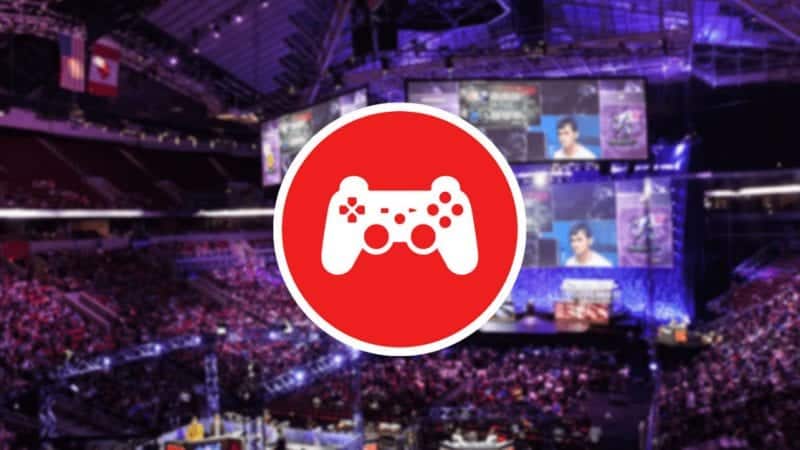Beyond Gaming | The Esports Industry | A Tale of Success
The esports industry, along with its supportive platforms, has created a sophisticated ecosystem booming with success. Let’s talk about that!
The video game industry’s projected 2022 revenue amounts to an astonishing $230 billion, making it the biggest market in the world. And many have heard about the exponential success of gaming all across the world, but only a small fraction know about its little cousin, the esports industry.
The easiest way of understanding esports is to think of it as professional gaming. And it’s true, esports is professional gaming. But it goes much deeper than garage events run by “nerds and social outcasts,” which is what most people think of when they hear the words “professional gaming.”
Slowly but surely, the esports industry is reaching its full potential, opening up a brand-new niche for investors and esports organizations alike. It’s creating a bunch of supporting industries, too. Surprisingly enough, esports betting seems to be the front runner here, drumming up massive success over the last decade. Apparently, people not only love watching professional gamers play video games, but they also love betting on esports events to try and cash in on their knowledge.
As stated above, the video game industry’s projected revenue by 2022 is $230 billion. The esports industry’s projected revenue by 2022 is $1.79 billion. Esports betting market worth, on the other hand, is expected to reach close to $30 billion by the year 2020.
The numbers, Mason, what do they mean?
Key Factors for Success
Several crucial factors play a key role in the success of esports. These factors significantly contributed during the transition from marginalized gatherings to professionally organized events. And nowadays, the scene continues to evolve, featuring lucrative events in some of the most mesmerizing esports venues worldwide.
Fast-Paced Gameplay
Let’s face it, fast-paced gameplay equals entertainment. It doesn’t get any simpler than that. Yes, there are a few slow-ish esports titles here and there, but the most popular ones are nothing but mayhem throughout each match.
Let’s take CS:GO as the perfect example. It’s a first-person shooter, playing off in-game strats, teamwork, and individual skillsets. The game’s system is based on rounds, with a maximum of 30 rounds per match, more if it goes down to overtime. Each round lasts roughly two to three minutes, and there’s a whole lot of action going on in such a short period of time. This often leads to sticky, clutch situations—a fan favorite!
Additionally, esports is just generally entertaining to watch. There’s a ton of different genres, and some of them are pretty easy to get into. It doesn’t matter if you’re an avid fan of the game or you’ve never even played it, you can still enjoy watching a game or two. Especially if you have friends who can help you out with the terminology and guide you through the experience.
Wide Array of Options
Just like regular sports, esports come in all shapes and sizes. Some people like playing shooters, so they mainly watch CS:GO and Rainbow Six: Siege events. Others like old-school strategies, so StarCraft II is their esports title of choice. Others have to get a daily dose of MOBA action… And don’t even get me started on fighting games.
No matter which type of a gamer you are, chances are there’s an esports title that’s right up your alley. And people like that. People love having multiple choices, which is one of the key reasons behind such a surging success in the esports industry. The versatility is a great thing. Whether we’re talking about esports titles, genres, or event organizers. The good old saying works like a charm here—the more, the merrier!
Creating a New Generation of Celebrities
The esports industry is modernizing celebrities. In fact, you could think of it as a factory for a new kind of celebrity: esports athletes. Similar to conventional athletes like Tom Brady, Cristiano Ronaldo, and Steph Curry, esports celebrities are also becoming household names but at a much slower pace.
The likes of faker, doublelift, and PashaBiceps already have a legendary status in the world of esports. There are many more names that belong there, too, and it’s a matter of constant debate in the esports community. They’re considered as role models, highly-influential figures, and subjects of admiration. In other words, gamers and esports fans think of them as rock stars.
But there’s more to it than brand-new celebrities making their presence known in the esports world. The esports industry is good at creating brands off prominent figures, both community and pro scene. The lines between professional gamers, esports athletes, and YouTubers/Twitch streamers are blurrier than ever. The premise stays the same. As long as they’re getting enough exposure, they’re driving the industry forward!



